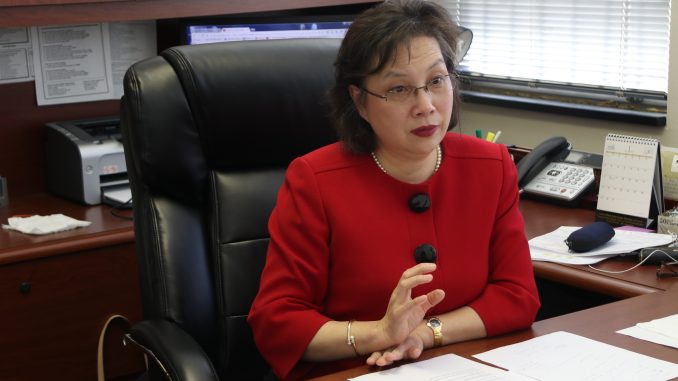
Grace Ma developed her passion for health care while living in China and observing her parents work in the medical field.
Now, she works to reduce health disparities, which are preventable health issues that can occur because of lack of resources or social barriers — like a certain group being able to afford better health insurance.
She works with underrepresented populations around the world as the associate dean of the health disparities program and a clinical sciences professor at the Lewis Katz School of Medicine.
Ma is also the founding director of the Center for Asian Health at Temple. She founded the center in 2000 to address “the needs from the community and the growing population of Asian Americans,” she said.
“They have culture and language barriers, access barriers in health care,” Ma added. “So that prevents and prohibits them from seeking health care regularly, putting their health at risk.”
Many Asian people who come to the United States are unfamiliar with western health care and insurance systems, Ma said, which contributes to those barriers.
In 2015, Ma received a Laura H. Carnell professorship, an award that honors faculty members who stand out in research, scholarship, the creative arts or teaching. In the Center for Asian Health, Ma focuses on community-based participatory research and patient-centered outcomes research, so that patients develop health care practices that work best for them.
“We are not just doing research in the lab, but we are doing research with the people and for the people,” she said. “We don’t want a one-size-fits-all program.”
Ma focuses on intervention, prevention, early detection and operating screening programs for certain types of cancer, like breast, liver, colorectal and lung cancer, as well as chronic diseases like diabetes and heart disease, many of which have higher incidence and mortality rates among Asian Americans.
The center has expanded to serve other underserved populations with similar health concerns, like African Americans and Latinos. By giving more clinical trials, therapy and medication to diverse communities, the program gives more people access to health care and tackles diseases more comprehensively, Ma said.
Ma’s research at the center also focuses on global health, especially in China. She added that learning about health care in China helped her to better understand immigrants’ needs in the United States.
Yin Tan, the associate director of community programs at the center, said community engagement and partnerships are important for the center. The center works with community leaders at churches to educate communities about health care and works to include nutritional guidelines in Asian supermarkets around the city.
Tan said the center started with 15 partners in 2000 and has since grown to 380, creating a large network on the East Coast from New York to Virginia. More than 80 programs have been implemented in collaboration with community leaders, like community-needs assessments to identify potential ways to help and pilot studies, which are smaller-scale studies meant to act as a test before a large-scale research project.
Aisha Bhimla, a third-year kinesiology doctoral candidate, has been a research assistant and part of the mentorship program at the center since 2015. Bhimla said Ma is her mentor.
“I like that the goal of the center is to reduce health disparities,” Bhimla said. “People say that Asians are healthy, but they are actually not. They don’t look at differences in Asian groups, but they put us into one category.”
Bhimla said many Asian people are at risk of diabetes, but many people overlook that risk because of the stereotype that Asian people are thin.
Ma said the scope of her work is expanding because she is trying to serve more underrepresented populations.
“We are part of the endeavor in making this effort moving forward,” Tan said.
Ma said she aims to continue promoting the awareness of health disparities in colleges, institutions and diverse communities in her role at the center and as a professor.
“We want to use whatever models that have been successful to adapt and transport to other underserved populations, even beyond Asians,” she said. “We need advance the science to increase the quality of health and also the quality of care.”
Quang Do can be reached at quang.duc.do@temple.edu.


Be the first to comment